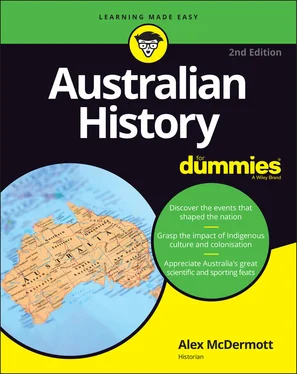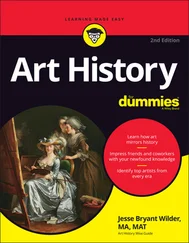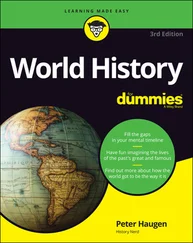The Colonial Office sent out a series of governors (such as Governor Bligh) to try to fix up the mess, but it didn’t end well for any of them — particularly Bligh, who ended up being arrested by the NSW Corps (refer to Chapter 4).
After the Bligh fiasco, the Colonial Office figured they had a troublesome colony on their hands — after all, you don’t arrest the governor unless you’re a rag-tag rebellious lot, right? So the next governor to arrive — Lachlan Macquarie, veteran of the American War of Independence and various skirmishes in India — was told to expect a colony gone wild, full of rapacious profiteers, angry and drunken ex-cons, and a place ripe for rebellion. Macquarie’s instructions were to quickly restore some order.
But something strange happened when Macquarie turned up in NSW in 1810: He liked what he saw. Then, to top it off, he went rogue. Macquarie wasn’t particularly interested in punishing convicts, or in making the place so brutal that it scared Britain’s would-be crims into behaving themselves. He embraced the fact that the colony gave convicts a second chance and made it official policy to reward people who had turned their lives around. If they succeeded and became prosperous, influential or simply useful, Macquarie wanted to know them. This was in complete opposition to what the Colonial Office believed official policy should be.
In the end a stern-faced commissioner was sent out from England to inquire into Macquarie’s rule, and it was found wanting. Macquarie returned to Britain and died a few years later, bitter and unappreciated. But in Australia the mark he left was deep. He ruled New South Wales for 11 years — from 1810 to 1821 — and when they buried him they inscribed his tombstone with the words, ‘Father of Australia’. The colony was already a nation of second chances before Macquarie arrived. But he was the first governor to try to make it official.
In this chapter, I cover the wide-ranging effects of Macarthur’s rule, and the outside forces (and one Commissioner Bigge) that brought him down.
Macquarie’s Brave New World
Governors in this period of British colonial rule generally turned up at the various tin-pot little outposts they’d been assigned to, imposed His Majesty’s will as much as they reasonably could, then got out (with hopefully a promotion), and headed off to the next assignment. The list of governors who began to identify with the interests of the colonists, against the British Government’s orders, is about as short as your little finger. Shorter even.
To start with, Macquarie seemed to have had no intention of varying this pattern. Having spent 30 years with the military, and seen postings that took him from New York and Charleston in the American Revolution through Jamaica to various battles and cities in India, his chief concern when being assigned to NSW was that such a distant and unimportant posting would mean he’d be overlooked for any upcoming promotions. But then, after arriving, the bizarre happened. He fell in love with the place, with the new kind of world that people were making in NSW.
After Bligh, and because of the bad press circulating from various disgruntled Evangelical Christians and people of influence (refer to Chapter 4), Macquarie arrived in NSW fully expecting a crime-ridden, chronically inebriated nightmare hellhole. Instead, he found a social experiment that had been bubbling along for some 20 years. Starting out with the maligned ‘dregs’ of British society, the unplanned experiment seemed to show that if you took even criminals and misfits and gave them
A chance to start again
In a new place entirely
With plenty of chances to get ahead
Lo and behold, people often did succeed.
 Since 1788, the feckless, the jobless, the impulsive and just plain foolish, not to mention the cunning and nasty, had been extracted from their usual habitations and haunts and used to begin a new society. Remarkably quickly, they filled out practically all the social and economic niches of 18th-century Britain that were available for the taking in a new world. By the time Macquarie arrived, ex-convicts were landholders, farmers, traders, tradesmen, retailers, ship owners, manufacturers and professionals such as doctors and lawyers.
Since 1788, the feckless, the jobless, the impulsive and just plain foolish, not to mention the cunning and nasty, had been extracted from their usual habitations and haunts and used to begin a new society. Remarkably quickly, they filled out practically all the social and economic niches of 18th-century Britain that were available for the taking in a new world. By the time Macquarie arrived, ex-convicts were landholders, farmers, traders, tradesmen, retailers, ship owners, manufacturers and professionals such as doctors and lawyers.
 One ship’s captain, reporting back to Sir Joseph Banks with some contempt on the improved situations of two ex-convict businessmen, stated: ‘I am informed they each have handsome houses at Sydney, keep their gig [carriage], with saddle horses for themselves and friends, have two sorts of Wine, and that of the best quality on their Tables at Dinner …’ Banks may have despised this but Macquarie thought it was wonderful.
One ship’s captain, reporting back to Sir Joseph Banks with some contempt on the improved situations of two ex-convict businessmen, stated: ‘I am informed they each have handsome houses at Sydney, keep their gig [carriage], with saddle horses for themselves and friends, have two sorts of Wine, and that of the best quality on their Tables at Dinner …’ Banks may have despised this but Macquarie thought it was wonderful.
As well as the very successful, there was everyone else — the skilled and unskilled labourers, the servants, the publicans and innkeepers, the dozens of professionals, clerks and administrators, the jailers and constables. Many of them, from top to bottom, were the classic ‘lower orders’, who in Britain had comprised the bulk of the soldiers and the criminal classes. Out here in the colony, they were filling practically every social role and occupation (including, of course, the drunks and repeat offenders — but these hard cases Macquarie didn’t mention quite so often). All in all, the social and economic world of Sydney and its hinterland, and soon enough in Van Diemen’s Land also, was starting to take robust shape.
Macquarie’s stroke of genius was to recognise this world order and seize upon it — not try to turn it back to what the original planners or current ministers in London expected, insisted or wanted it to be. Instead, he chose to fast-track it. He recognised the positive outcomes of this (accidental) social experiment, and began to champion it.
 Early on in his governorship, Macquarie decided that the convicts, ex-convicts and others who were making a go of it in NSW weren’t the problem — they were the purpose of the place. Rather than treat the colony as simply an outpost of Britain’s imperial will, he began to see it from the convicted criminals’ point of view. The colony was a land of opportunity for the people living there, and it should be governed with their interests in mind. With a policy of part goodhearted benevolent patron, part authoritarian despot, he endeavoured to make sure that generations of convicts’ descendants who came afterwards would remember him warmly.
Early on in his governorship, Macquarie decided that the convicts, ex-convicts and others who were making a go of it in NSW weren’t the problem — they were the purpose of the place. Rather than treat the colony as simply an outpost of Britain’s imperial will, he began to see it from the convicted criminals’ point of view. The colony was a land of opportunity for the people living there, and it should be governed with their interests in mind. With a policy of part goodhearted benevolent patron, part authoritarian despot, he endeavoured to make sure that generations of convicts’ descendants who came afterwards would remember him warmly.
This went against express instructions from the Colonial Office and general British opinion.
Living under the Macquarie regime
Macquarie believed in giving ex-convicts ‘every equality’, which he started pushing for in his official correspondence from quite early on. He gathered successful ex-convicts around him and gave them prominent positions, making them magistrates, police superintendents, surveyors and architects — and even making one a poet laureate. They were all warmly welcomed into ‘society’, invited by the Governor and his wife to receptions and dinners at Government House.
Macquarie also believed in treating newly arrived convicts as if their slate was cleaned of past behaviour. In this he was helped by the fact that, like previous governors, he had precious little information about the crime or character of those getting off the boat: A note about the sentence, a behaviour report from the hulk he or she had been transported from, and that was about it. This bureaucratic inoperativeness worked in Macquarie’s favour. The way he saw it, things started over when you arrived as a convict in Australia. Your behaviour, your diligence and (most of all) your usefulness was what counted most. The chance for convicts to start again was the priority.
Читать дальше

 Since 1788, the feckless, the jobless, the impulsive and just plain foolish, not to mention the cunning and nasty, had been extracted from their usual habitations and haunts and used to begin a new society. Remarkably quickly, they filled out practically all the social and economic niches of 18th-century Britain that were available for the taking in a new world. By the time Macquarie arrived, ex-convicts were landholders, farmers, traders, tradesmen, retailers, ship owners, manufacturers and professionals such as doctors and lawyers.
Since 1788, the feckless, the jobless, the impulsive and just plain foolish, not to mention the cunning and nasty, had been extracted from their usual habitations and haunts and used to begin a new society. Remarkably quickly, they filled out practically all the social and economic niches of 18th-century Britain that were available for the taking in a new world. By the time Macquarie arrived, ex-convicts were landholders, farmers, traders, tradesmen, retailers, ship owners, manufacturers and professionals such as doctors and lawyers. One ship’s captain, reporting back to Sir Joseph Banks with some contempt on the improved situations of two ex-convict businessmen, stated: ‘I am informed they each have handsome houses at Sydney, keep their gig [carriage], with saddle horses for themselves and friends, have two sorts of Wine, and that of the best quality on their Tables at Dinner …’ Banks may have despised this but Macquarie thought it was wonderful.
One ship’s captain, reporting back to Sir Joseph Banks with some contempt on the improved situations of two ex-convict businessmen, stated: ‘I am informed they each have handsome houses at Sydney, keep their gig [carriage], with saddle horses for themselves and friends, have two sorts of Wine, and that of the best quality on their Tables at Dinner …’ Banks may have despised this but Macquarie thought it was wonderful. Early on in his governorship, Macquarie decided that the convicts, ex-convicts and others who were making a go of it in NSW weren’t the problem — they were the purpose of the place. Rather than treat the colony as simply an outpost of Britain’s imperial will, he began to see it from the convicted criminals’ point of view. The colony was a land of opportunity for the people living there, and it should be governed with their interests in mind. With a policy of part goodhearted benevolent patron, part authoritarian despot, he endeavoured to make sure that generations of convicts’ descendants who came afterwards would remember him warmly.
Early on in his governorship, Macquarie decided that the convicts, ex-convicts and others who were making a go of it in NSW weren’t the problem — they were the purpose of the place. Rather than treat the colony as simply an outpost of Britain’s imperial will, he began to see it from the convicted criminals’ point of view. The colony was a land of opportunity for the people living there, and it should be governed with their interests in mind. With a policy of part goodhearted benevolent patron, part authoritarian despot, he endeavoured to make sure that generations of convicts’ descendants who came afterwards would remember him warmly.










